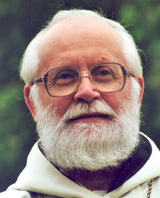 |
|
||
|
|
|||
January 5, 2014 – Epiphany of the Lord
Is 60,1-6 ; Eph 3,2-3a.5-6 ; Mt 2,1-12
Holy Cross Monastery, Illah, Delta State, Nigeria
Homily
The
many parables that we have in the Gospel are obviously not historical
narratives. They are stories made up by a teacher as a means to transmit an
important teaching. For example, the parables of the Good Samaritan or of the
Prodigal Son. It was a teaching tool widely used in antiquity, particularly in
Jesus’ time. In the same manner, the Gospel writers often construct narratives
in order to transmit a spiritual or theological teaching. These narratives are “true”; but their truth
resides in the message that they transmit and not in the details of the
story. This is true especially for the stories
about Jesus’ childhood, which are very beautiful and rich with their great
poetical and symbolic expressions.
The
message that we find in each one of the three readings of today’s Mass is that
of the universality of
salvation. This is the message on which
we must meditate, rather than bothering with all the details of the visit of
the Magi and all the stories made up about them through the centuries. There is, in our three readings, a constant
progression in the revelation and a dynamic deepening of that revelation. We must also be aware of the fact that this
development and deepening of the revelation continues with our own reception of
it.
The
beginning of the first reading was very solemn: “Rise up in splendour, Jerusalem! Your light has come, the glory of the
Lord shines upon you.” But the prophet Isaiah adds
immediately that such a light that has risen upon Jerusalem was not for her alone:
“Nations shall walk by your light and
kings by your shining radiance”. Jews – but not only Jews; in fact, believers of every faith in every
time – wanted to possess God. He was
“their” God, and He must be theirs alone. Then the prophet Isaiah tells them
that the light that will shine upon them, although it is their light, since it
has come upon them, shall not be reserved for them
alone. Others will come to that light. Nations shall come, not to Israel, but to the
light that has shone upon Israël. Quite a difference!
Then,
the narrative that we have in today’s Gospel is an application of that
prophecy. As soon as Jesus was born, as
soon as the light of the Incarnate Word has risen upon Israel, nations hurry to
open to that light, even when Israel itself does not open to it. Nations come,
bringing with them their own symbols and their own religious customs.
Saint
Paul, who is always a good theologian, transmits to us, is his letter to the
Ephesians, the “mystery” that was hidden in past generations and that was
revealed to him. That mystery was that
the Nations – that is, the Pagans, all those who were not Jews – were
associated to the same heritage, to the same body, to the sharing in the same
promise, in Christ Jesus, through the preaching of the Gospel.
This teaching
of saint Paul has been interpreted in various ways along
the centuries. Two thousand years later, we always discover new aspects of that
teaching. There was a time when it was
interpreted in an exclusive manner : “No salvation
outside the Church… understood in the very limitative meaning of “outside the
Catholic Church”. That interpretation
condemned to eternal perdition the great majority of men and women of all the
times who did not receive the teaching of the Church. It was
also understood in an “inclusive” manner: “All are called to receive the
message of the Gospel and to become Christians in order to be saved”. But, since Vatican
II, the Church has gone further in its understanding of that mystery. Christians do not have the “privilege” of
being the only ones to be saved. They don’t have a
privilege; they have a “mission”. Their
mission is to transmit Jesus’ message, that is, that all men and women are called to be saved.
The
symbolic and poetic image of the Magi coming from the East and offering to
Jesus gold, frankincense and myrrh, represents the peoples of all the cultures,
of all the faiths praising God trough the rituals and the symbols of their
religious traditions. We must certainly
witness to the Revelation that we have received through the Gospel, without
fear and without false modesty. At the
same time, we must develop a profound respect for all those who praise God
through religious traditions other than ours. Every human being, whether or not he was put in
contact with the message of the Gospel, was in fact transformed by the
Incarnation of the Word of God. When Jesus was born, God did not only become
“one of us”; he assumed and transformed the whole of humanity. We must recognize
that dignity in every human being. This is the message of today’s celebration.
Armand VEILLEUX
|
|
||
|
|
|||
